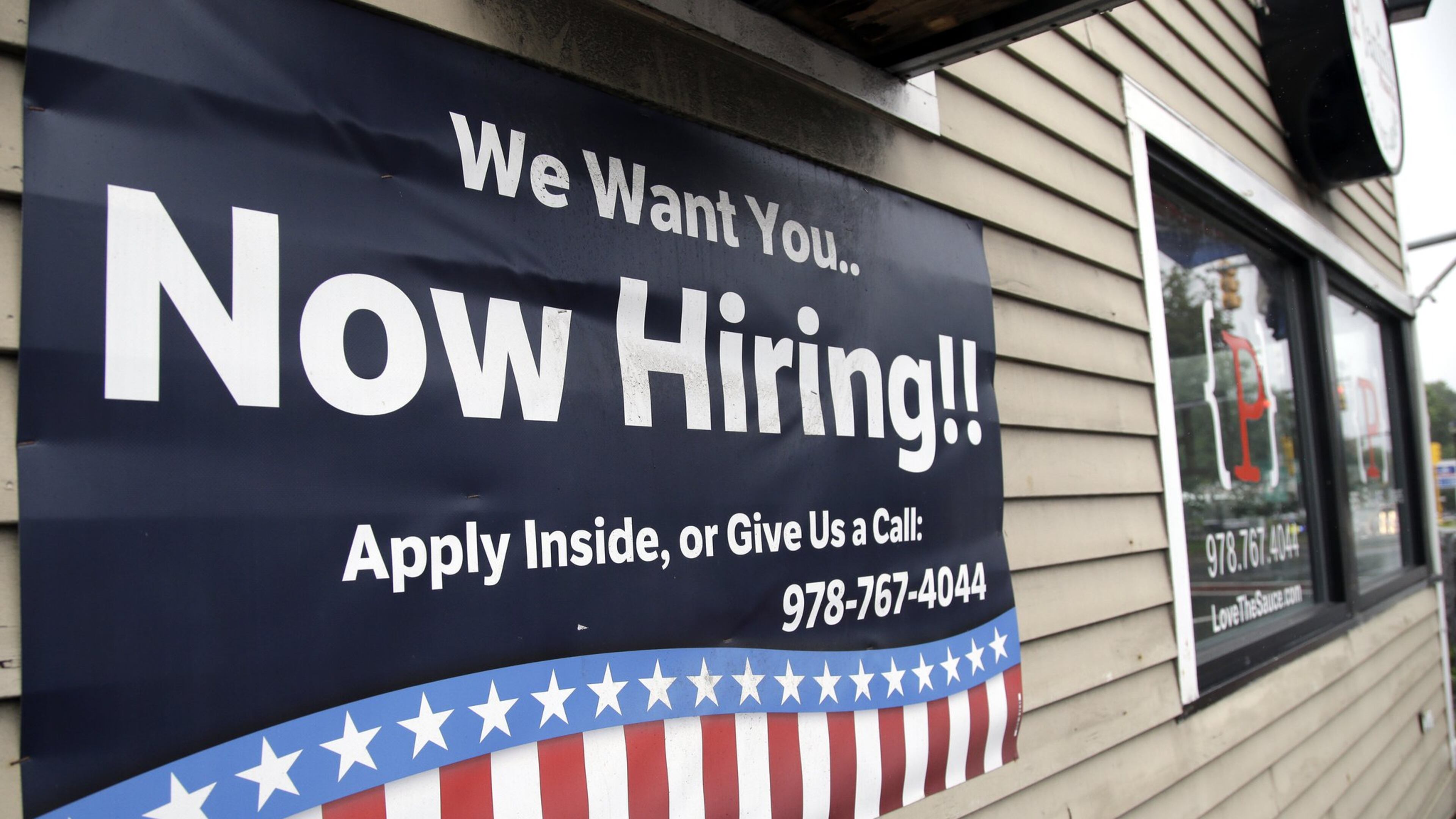Opinion: Gov’t. check can’t beat work’s dignity

The latest unemployment statistics are in and show trends continuing with millions of jobs across the nation going unfilled as unacceptably high numbers of Americans draw on generous unemployment benefits. On June 23, the U.S. Bureau of Labor Statistics reported its unrevised May 2021 figures, showing a drop in the unemployment rate for Georgia from 4.3% in April to 4.1% in May.
The good news is that our state has fared much better than many others in the COVID-19 pandemic recovery. States with more draconian restrictions — such as California — have had a much slower economic recovery.
Georgia’s rate is 16th-lowest in the country, beating out 34 other states. And the U.S. as a whole has a 5.9% unemployment rate, significantly higher than Georgia’s.

Even so, while the unemployment numbers are encouraging for Georgia, they can be misleading because they ignore people who dropped out of the labor force altogether. In this regard, only two states — Utah and Idaho — have bounced back to pre-pandemic levels. Georgia is still 4% behind, representing 185,400 persons without work who were employed before the pandemic.
The bottom line is that while these numbers point to modest progress in our nation’s recovery from last year’s economic shutdowns due to COVID-19, we still have a long way to go to reach pre-pandemic levels of full employment and robust economic performance.
Beyond these numbers — and the partisan debate over why businesses can’t find enough employees willing to return to work — one crucial point is being overlooked: Jobs provide dignity and purpose to people’s lives and contribute to community flourishing in ways that can’t be measured by monthly reports.
It’s true that augmented unemployment benefits and stimulus payments have played a role in preventing people from falling into poverty. But income is only one metric if employment. Work is also linked to social, emotional, and physical health.
Consider that life expectancy in the U.S. has now dropped one year for the average American male and three years for Black males. Research consistently shows that unemployment — even for short periods of time — contributes to negative psychological and physical health ramifications. One analysis from The Quarterly Journal of Economics found that mortality rates were 50 percent to 100 percent higher for men in the year following a job loss. Those impacts extended for another two decades, with death rates 10 percent to 15 percent higher during that time.
The pandemic has also exacerbated America’s mental health crisis with millions sidelined from work and the inherent dignity it confers. In February, researchers at the University of California San Francisco estimated that more than 30,000 Americans died between spring 2020 and spring 2021 because of mental-health challenges caused by pandemic-induced un- or under-employment.
As Georgia responds to extended benefits and restarts the economy, we must be aware of the social and physical health impacts of policy changes. While the COVID-relief efforts can help people survive, they don’t provide meaning and fulfillment the same way work does.
If we continue to fall into the trap of viewing joblessness in strictly financial terms — and look, instead, to the government for our every need — we rob ourselves of the God-ordained purpose, personal growth, social connection and upward mobility that comes with work.
And while safety nets are important and may help us feel better and appease our collective conscience, they often keep the poor “out of sight and out of mind’'— and can restrict their access to the economic and social life that we seek for ourselves and our loved ones.
In the end, government benefits during an extended time of crisis like COVID are important. But they should not be a way of life, and should be eliminated as quickly as possible so that work-capable adults can reengage with the one thing that takes us beyond ourselves and provides us with some of the most important experiences and relationships of life — meaningful work.
Randy Hicks is the president and CEO of the Georgia Center for Opportunity, an independent, nonpartisan nonprofit focused on creating opportunities for quality education, fulfilling work and a healthy family life.


